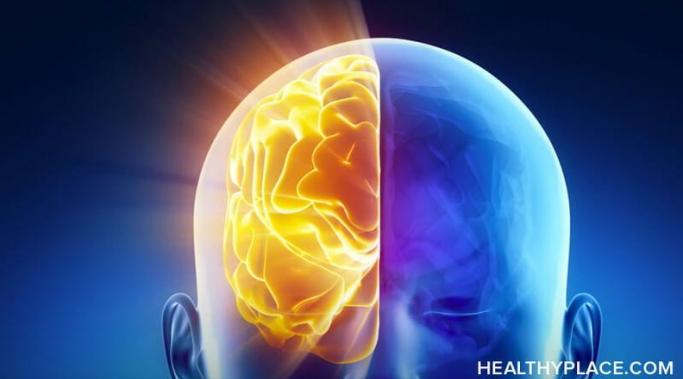I was asked about how I have continued to work even through major bipolar storms. I found when I wrote about this topic, pages and pages were filled, so we’re splitting it in half. Today is part one: how to work an office job with bipolar disorder.
Some of you know I’ve had office jobs in the tech industry for most of my working career and only recently made a shift. And in those years I’ve had various severities of bipolar disorder. And what I’ve learned is this: working with bipolar disorder comes down to one thing - being stubborn.
Understanding Mental Illness
I think I’m pretty great as a general rule. I’m kind, caring, intelligent, creative, talented, sexy, witty and a bunch of other stuff. Not particularly greater than anyone else, just the normal amount of great.
Except for when I’m not, of course. Except for when I'm darkness sliced from evil. Except for when my slithering existence requires extinguishing. Then, I’m not so great.
This week one of my Twitter followers asked me for advice on communicating with her friends and family about her mental illness. She has only recently started telling people of her illness and she wasn’t sure on how to express her needs around her mental illness.
This is a great question and one I think every person with a mental illness faces. How do you tell people about your mental illness needs?
Sometimes people don’t believe I’m particularly sick. They meet me, I look fine, I interact, I charm, I wit and all seems, if not normal, at least something reasonably normal adjacent.
And that’s fine. It’s by design. Being a high-functioning mentally ill person, I can’t really afford to run around with my hair on fire. But faking normalcy, happiness and pleasure is a tricky and very expensive bit of business.
Congratulations; if you’re reading this you’ve survived the holidays, or most of them anyway. You’re past the late-night wrapping sessions, the overindulgence in eggnog and the stuffing that you never like but every year are forced into eating anyway. Huzah.
But if you’re a bipolar like me, you’ve found that all that forced merriment has left you feeling hollow, tired and depressed, so it’s time to take action to get back to your pre-holiday self.
I’m spending this Christmas back in the town where I grew up, sleeping in my mother’s guest room. I have to be there a week. A week with parents and siblings. A week of turkey and tiny oranges. A week of me silently begging to go home.
But I understand that holiday obligations are, well, obligatory, so I do have some methods for trying to survive it.
OK, so I admit it, I haven’t spent a whole lot of time thinking about gender’s relationship to depression. I know the basic pieces of information: more women are diagnosed with depression than men, and more women attempt suicide while more men actually commit suicide.
But there is a lot to understand beyond that. Did you know that men are up to 15 times more likely to commit suicide than women?
I have been through very long, dark nights of the psyche. I have been in pain I didn’t think I could survive. I’ve been in pain I almost didn’t survive. I have done things I never wanted to do. I have done things I never thought I would do. I have been to places most people wouldn’t even come up with in their nightmares.
And when I’m not there, I’m grateful. No matter how much I might think things suck, I’m not sitting in that particular pile of blood and muck. No matter how I feel today I can honestly say it can get worse. Every time I think I’ve hit bottom I’ve found there is actually more bottom beyond that. It is unfortunate but true, there is no maximum to pain.
And any time I even think about changing meds I’m worried I will go there again.
What I know about the brain is a fragment of what is known about the brain. What we know about the brain is a fragment of what there is to know about the brain. That being said, what we do know is worth taking a look at.
In the 1960’s scientists discovered that increasing levels of dopamine, norepinephrine, and serotonin in the brain reduced depressive symptoms. This suggested that a depressed brain didn’t have enough of these chemicals and this is where the chemical imbalance theory came from. It was quite reasonable and made perfect sense, but we’ve learned a lot since the 1960s.
I am a word-fetishist. I adore words. They are my playthings. They are my blankies. I generally mold them, shape them and occasionally break them at my leisure.
But I also respect words. I respect their meaning and their use outside the bounds of current politically correct, self-help thinking, but somehow the rest of the world wants to complain because I call a spade a shovel.




